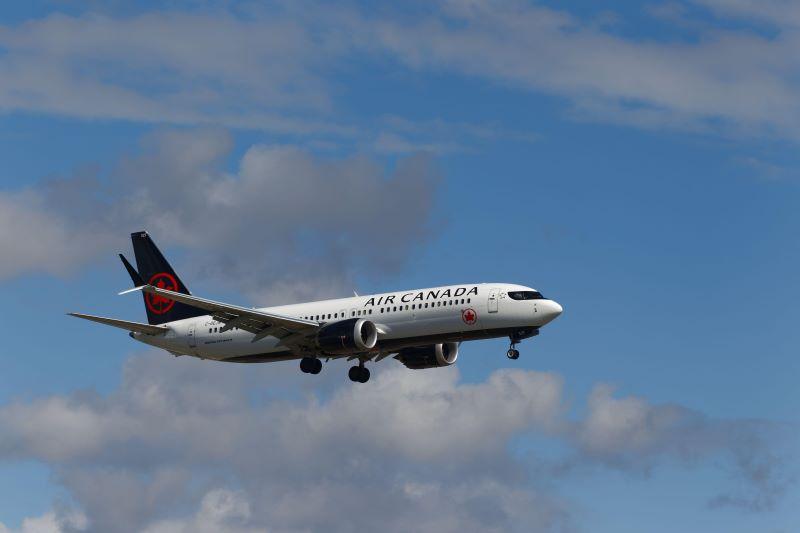Airlines Aid Wildfire Evacuation In Canada’s Northwest Territories

Wildfire has prompted the evacuation of approximately 20,000 residents from the territorial capital of Yellowknife in Canada’s Northwest Territories (NWT).
The evacuations are some of the latest during what has been Canada’s worst wildfire season on record. Over 5,500 wildfires have burned provinces and territories across the country in 2023, and in the Northwest Territories over 230 wildfires continue to burn, according to government officials.
By the evening of Aug. 17 the fire was 15 km (9.3 mi.) northwest from the City of Yellowknife, NWT Fire officials announced, with winds and dry conditions aiding its spread toward the city. Airtankers helped to slow the flames’ progression, holding evacuation route Highway 3 open, as fire on the north side of the highway pushed south.
Residents were ordered to evacuate by noon on Aug. 18.
“Recognizing the urgency of the situation, we have granted necessary exemptions to: Allow pilots to extend their flying hours, ensuring that evacuation efforts continue uninterrupted; Allow residents being evacuated to bring their pets on board their flights; and put in place more flexible identification requirements for passenger[s] boarding flights who may have left their ID behind,” Canada’s Transport Minister Pablo Rodriguez said on Aug. 17. “Many airlines have stepped up to add more flights to help evacuees ... Transport Canada is in direct contact with other airlines to ensure there is extra capacity during the evacuation.”
Air Canada and WestJet have adjusted service and implemented flexible cancellation policies. Both airlines were among the carriers that adjusted Maui service the week prior to assist with Hawaii’s wildfire evacuations.
Inuit-owned Canadian North Airlines has also canceled its scheduled service to and from Yellowknife Airport (YZF) Aug. 18-20, in order to reassign aircraft for evacuations. It has been actively conducting evacuation flights since Aug. 14, the airline noted.
“Given the current emergency situation in Yellowknife, Canadian North is prioritizing evacuation flights and making necessary adjustments to our regular flight schedules,” Canadian North wrote in a statement. “All changes to existing flight bookings due to the wildfire situation are being made at no additional fees to our passengers.”
By the evening of Aug. 17, 1,043 people were being airlifted out of Yellowknife, local government officials announced, not including passengers on scheduled flights and private charters, with more than 20 evacuation flights to Calgary planned for Aug. 18 providing nearly 2,000 seats.
“The first military evacuation flight from Yellowknife took place last night onboard a C-130 Hercules aircraft which safely carried 79 long-term care residents to Edmonton,” Minister of National Defense Bill Blair said during an Aug. 18 press conference. “Additionally, military aircraft scheduled for today will continue to focus on helping the most vulnerable.”
Scheduled Air Canada flights out of Yellowknife doubled to four on Aug. 17, with the airline upgauging one of the Bombardier CRJ-900 flights to a 169-seat Boeing 737-8 for added capacity. The carrier also added an extra 737-8 flight on Aug. 18, bringing flights to three, and said it had capped fares. WestJet added an extra YZF-Calgary flight on Aug. 17, also utilizing larger aircraft and increasing its pets-in-cabin limit. It canceled six flights Aug. 18-19, and reported adjusting fare classes to avoid price escalation while still working to provide increased capacity from YZF.
“This is a complex and evolving situation, and we remain in contact with NWT government officials to provide support,” Air Canada wrote in a statement. “We have deep roots in Yellowknife as our regional airline partner Jazz has employees who together with their families live in this community ... At this time, there will be no flights to or from Yellowknife on Saturday, Aug. 19 due to the government evacuation order. We plan to operate as the situation permits.”
Air Canada also refuted reports of price gouging, claims that spread on social media, stating that it had proactively capped fares for its direct flights out of YZF.
“The examples on social media are aggregated fares by websites which are not in line with what we are offering,” the airline said. “For example, some involve several stops and other carriers, with some trips lasting as much as 21 hr., when a normal nonstop Yellowknife-Calgary flight is two hr. We endeavor to get these aggregated fares corrected where possible.”
During remarks on Aug. 18, Minister Rodriguez said his department was actively monitoring fares and would have “zero tolerance” for any gouging, while describing ongoing efforts to add air service.
“We’ve asked for support from all the commercial airlines that are operating there,” said Minister Rodriguez. “So Air Canada added more flights, WestJet, Canadian North, we have Air North also helping, Summit [Air], North Cariboo [Air] of course, the armed forces, and we will make sure that we provide as many planes as we can.”
The remainder of Canada’s wildfire season—which typically runs from May to October—is projected by the Government of Canada to have continued higher-than-normal fire activity amid warm temperatures and drought. According to the Canadian Interagency Forest Fire Center, over 13.9 million hectares have burned in 2023 so far.





